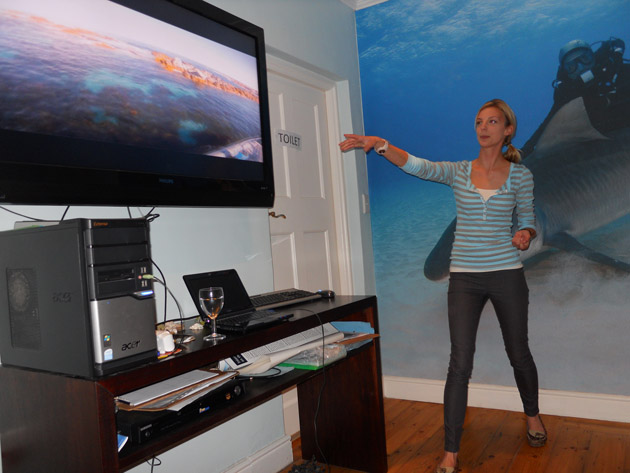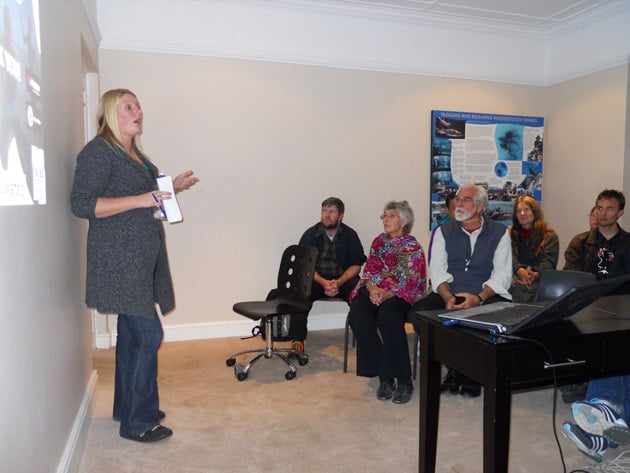Talks Highlight New Research on Shark Movements and Behavior
Final weekly speaker series event to be held on 26 July
The Save Our Seas Shark Centre welcomed Sarah Titley of Shark Spotters and Michelle Wcisel of Dyer Island Conservation Trust, on Friday 19 July to share the data they have collected on shark movements and seal interactions during a free public talk.
Michelle Wcisel, a zoologist specializing in predator prey relationships, introduced the public to her study on the Cape fur seals and White Sharks at Geyser Rock in Gaansbaai, and how these interactions differ from the data collected on the seals at Seal Island in False Bay. Her study highlighted how the diverse habitat structures effect the anti-predator tactics used by the Cape fur seals in the white shark rich waters of Gansbaai.
Sarah Titley explained the history and value of the Shark Spotters programme, and its uniqueness when compared to other shark attack mitigation methods seen around the world. She revealed interesting data collected over the last 8 years and how this will help benefit the public to make informed, educated decisions regarding the risk of shark encounters when entering the water.
Important for public safety, she highlighted that further analysis of the data is currently being done to determine when one could expect to see shark sightings during certain moon phases and water temperatures. Sarah also revealed the findings on the latest study conducted in June 2012, on the effects of the Shark Shield™, an electric deterrent on the behaviour of white sharks (read more here).
Next week’s talks, to be held on 26 July from 18:30-20:30, will be last of this series held in July 2012, with Claire Janisch and Will Lawson of biomimicarySA.
Bios” means life, “Mimicry” means imitate. Biomimicry is the practice of learning from and then emulating nature’s genius to solve human challenges and create more sustainable designs. Whatever the design challenge, the odds are high that one or more of the world’s 10 million creatures has not only faced the same challenge, but has evolved effective strategies to solve it. Nature can provide us with innovative and progressive solutions to the design, engineering and other challenges that we now face: energy, food production, climate control, benign chemistry, transportation, packaging, and more. The vision is to create products, processes, organizations, and policies, new ways of living that are well-adapted to life on earth. Claire and Will share the inspiring organisms of the ocean and what we are learning from them for innovative solutions to our sustainability challenges.
These talks are free to the public and there are a few seats remaining for 26 July. Contact Kim von Brandis to reserve a seat as booking is essential, and visit our website and Facebook page for more information.
The aim of the Shark Centre is to encourage the conservation and awareness of sharks and marine life in the False Bay area through public educational programmes and activities, and by supporting scientific research.


